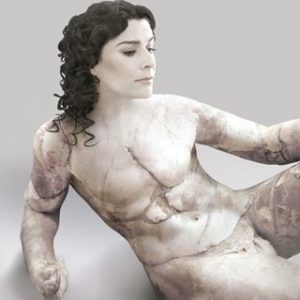Cecilia brings castrati to Salzburg
mainCecilia Bartoli has just unrolled plans for the 2019 Salzburg Whitsun Festival, titled voci celesti.
She says: ‘It is no coincidence that I can realize the idea now, when discussions about the abuse of the bodily integrity of artists have become so topical. In the name of art, thousands of boys were mutilated – a terrible tradition which was kept alive for centuries and only rarely questioned. Given this background, I wondered whether the great artistic accomplishments of this era should be celebrated at all by performing these pieces of music? To me, the answer is obvious: yes, absolutely. However, their art must be illuminated from other perspectives too, and the highly problematic context discussed.’
The two operas she will present are Handel’s Alcina and Nicola Porpora’s Polifermo.

image: Decca






Quick note, Norman: Take the r out of the title of the Porpora opera – it’s Polifemo (i.e. Polyphemus, the giant cyclops).
How should Norman know how the opera is called? It has nothing to do with gossip at all.
Any conscientious journalist or blogger has to make at least a reasonable effort to check their facts and qualify any unverified reports.
This mutilation was hideous for the sake of art. It never did make sense to me and an insult to the suffering of these boys and young men why we allowed the development of the so called counter tenor voice to continue the celebration of this type of male enforced singing in the baroque period. The question is, is why did the authorities feel the need to carry out these mutilations when today it is perfectly acceptable for males to sing falsetto to get the same effect without the need for castration. The answer is that both voices are completely unrelated and we should ban the so called counter voice for the sake of decency in remembrance of these unfortunate young men. Today, women altos are the rightful heirs to the castrati singers.
If you have been present in a good countertenor performance, you will know how powerful it can be.
By the way, history, including art history and music history, is made of injustices. Every single landmark is a testimony to such injustices, but we don’t destroy them.
Er…women sound completely different from counter-tenors. We can’t be sure what castrati sounded like, but it is likely to be much closer to the counter-tenor voice than to any female voice.
The real problem with Baroque opera is the paucity of suitable voices. But the few competent counter-tenor voices who can sing the parts are likely to be as close as we can get if we want to hear something approximating Baroque opera as intended by the composer and heard by contemporary audiences.
Millions of infant boys are still being mutilated today in the name of sanitary health or religion.
Let adult men decide for themselves.
I think castration is slightly different.
Please don’t confuse a Progressyve with facts.
Bravo
Agreed. Such things are violations of human rights – surviving dark traditions of dark times.
Um…there is no real evidence that such religious practises have a detrimental effect on the health of the boys subjugated to these practises.
Castration, however, is clearly bad for the victims.
Nor will Cecilia stay out of my city, and probably knows (along with …
And further more I didn’t ask Kaleidoscope to call me using false names of the same….
erotic it isn’t, and i don’t go back to look at these posts